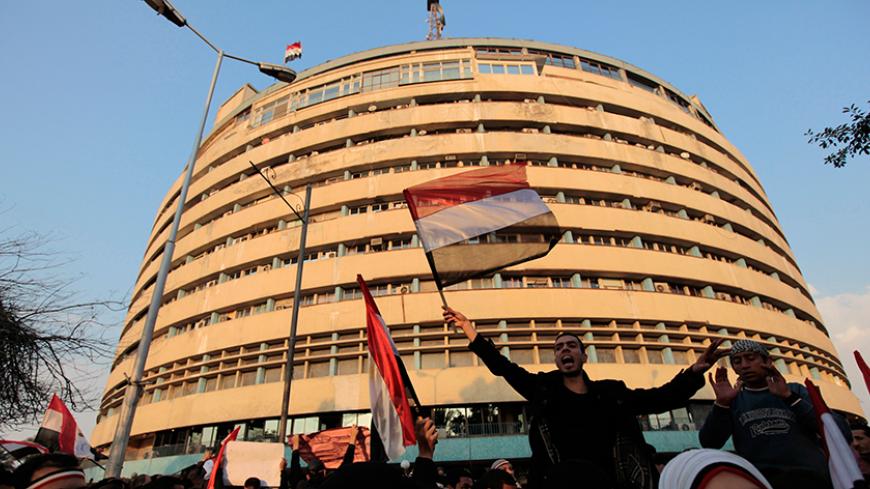CAIRO, Egypt — The book "Tahrir: The last 18 days of Mubarak," published in 2012, revealed what was secretly going on behind the scenes prior to President Hosni Mubarak’s famed resignation speech on Feb. 11, 2011. Most important among this information is the disassociation of the Egyptian military and intelligence services from the Mubarak administration.
Abdel Latif El-Menawy, the author of the book and the former head of the news department at Egyptian state TV, says he revealed "what he was able to say at the time" of what he was privy to in his association with decision-making circles.



